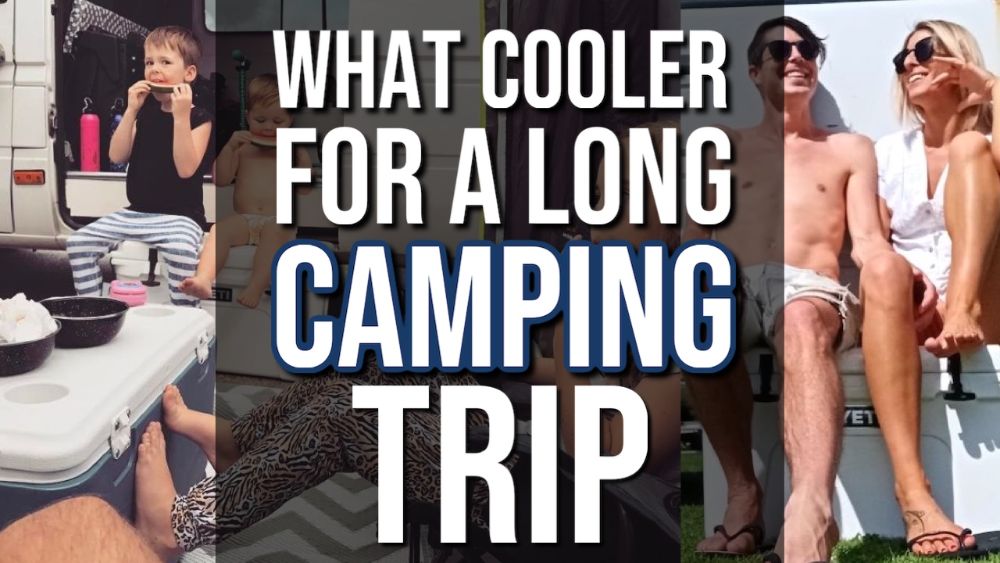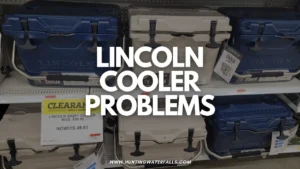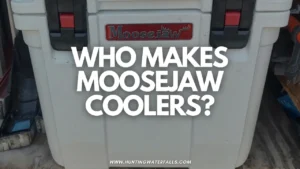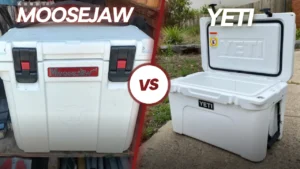My family and I love camping. More specifically, we love eating great food while camping. We go all out when we camp.
I usually set up an outdoor kitchen with two burners, a gas grill, a charcoal grill, a microwave, and a fryer. We head to the rocery store and fill up our biggest cooler.
Whether you go all out or just need your burgers and hot dogs to stay cold for your whole trip, a quality cooler makes all the difference. In this article, we will discuss the factors make a cooler more effective and the ones that make a cooler ideal for long camping trips.
Will the Cooler Stay Cold?
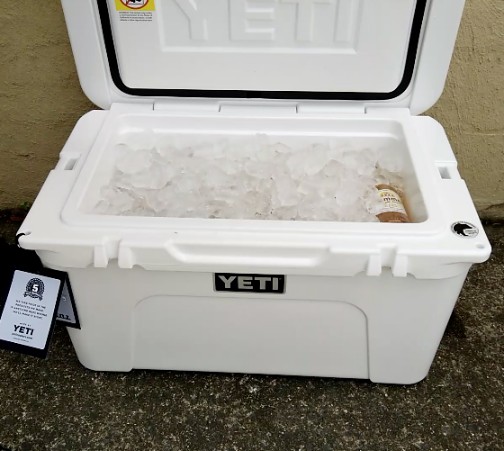
Roughly 10 years ago, my wife and I took a long camping road trip. The cooler be brought was relatively small so we could fit all of our other gear. It was also not very good at keeping things cold. One of those cheap ones you get from your local Walmart or hardware store, back before Yeti coolers were all the rage.
I noticed that the lid did not like to stay shut, so we were constantly having to check it. When we got about half way, we found a little shop selling fresh fish but by the time we were ready to cook them the next day, the ice had melted and they had gone bad. We were not happy.
This is why camping trips work so much better with a quality cooler. You can bring pretty much any food you want and cook incredible meals without having to add ice every day. We learned that the hard way.
Do We Need a Week or More?
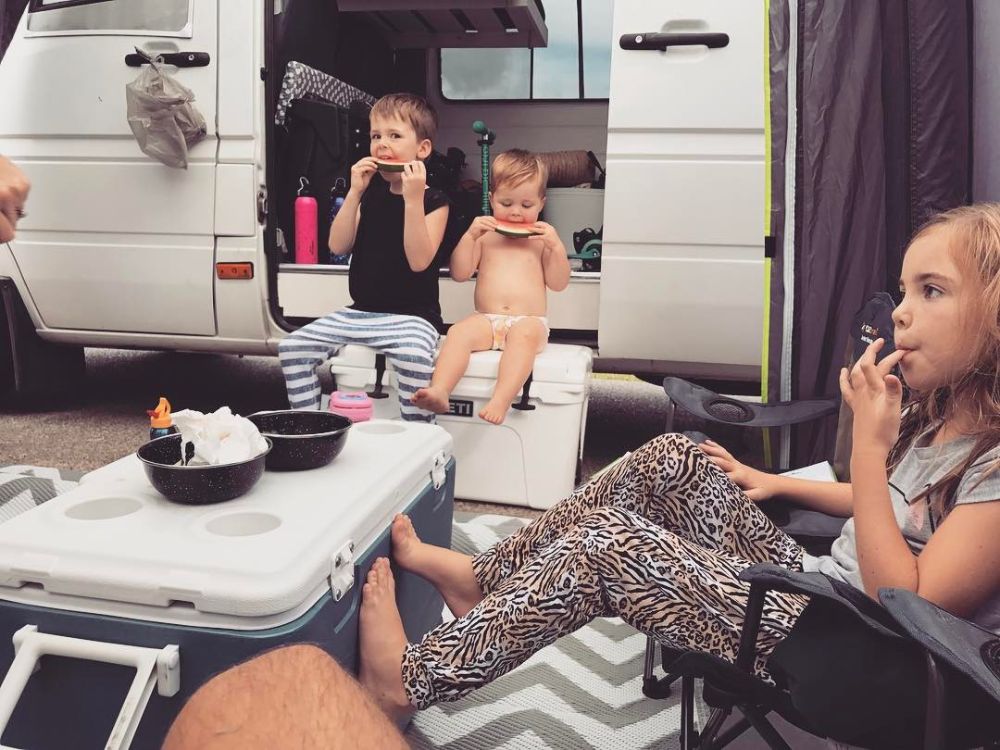
There are lots of mid-grade coolers that will keep ice cold for a few days. Almost all of them will work for 24 hours. So do we really need a top grade cooler that will last 7-10 days?
For an ideal camping experience, I don’t like to add ice to the cooler. I like to camp remotely, and often it is hard to find a place to buy ice nearby. There is also usually no cellular service or GPS, so finding anything can be tough.
That being said, for the average camper you may be able to get by with something less expensive. My friends and family do several week-long camping trips each year, so I find a top notch cooler to be a must.
For someone who is just going out for a picnic or packing a lunch, these top-notch coolers would be overkill. It would be too expensive and probably too large as well. However, if you enjoy long camping trips or crazy weekends with guests grabbing drinks every few minutes you want a better option.
Materials
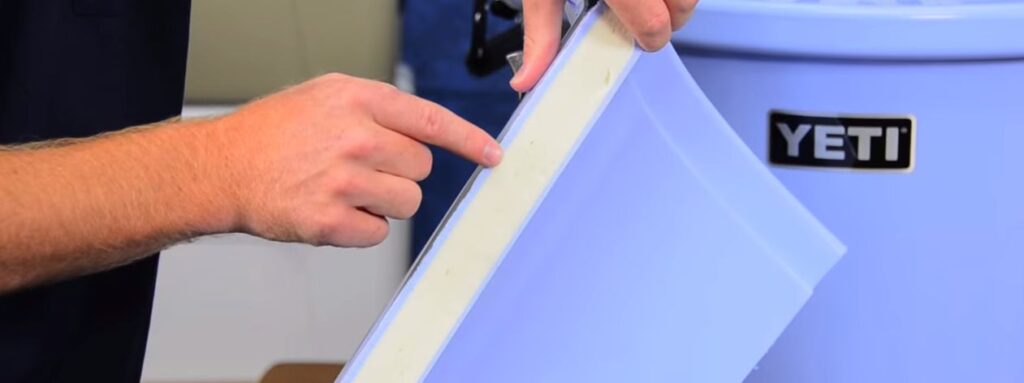
For most of my life, coolers have always been the same. They were made of cheap materials and would keep food and drinks cold for a few hours in the summer heat.
Then about 5 years ago, I discovered Yeti cooler. I then realized what was possible with better materials.
For top rated coolers, denser metals and plastics are used. These materials are tougher with no flaws for cold air to get out. They not only insulate well, but they will stand up to the abuse that a cooler takes on a long camping trip.
It may be obvious, but the thicker the walls of the cooler are the longer it will keep cold. While it makes the cooler bigger and heavier, some of the best have walls that are two inches thick or more. Generally, two inches is an ideal thickness to have a balance between size, weight, and function.
Design and Size
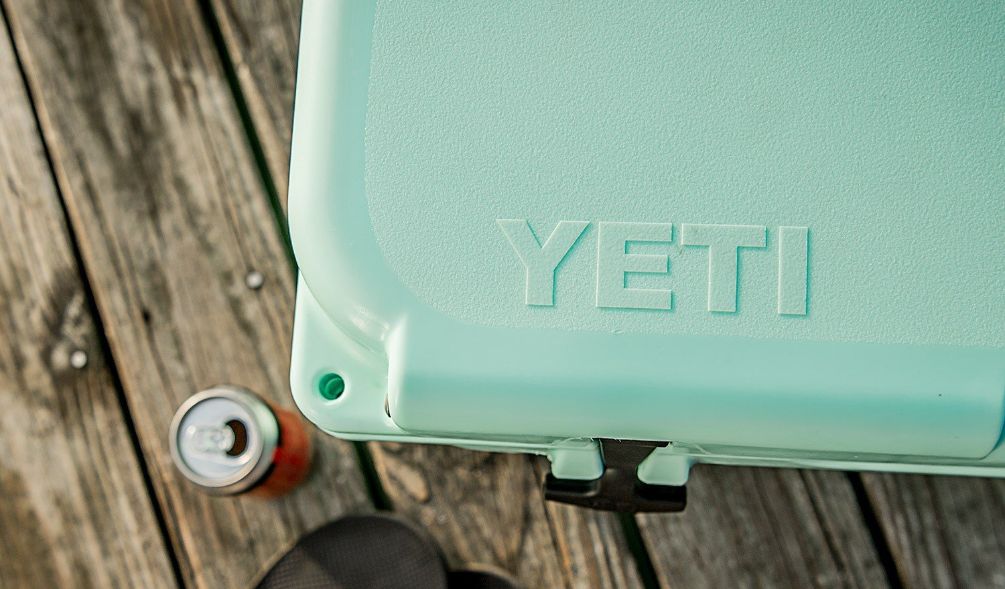
All of the best coolers on the market are designed with roto-molded construction. This means the body is made of one continuous piece of material.
There are no seams, so the cooler is tougher. It also means no weak points for cold air to escape.
As for size, bigger coolers will generally keep cold longer than smaller ones. This is primarily because the inside temperature is not as affected by the outside temperature because of the added volume.
Bigger coolers also handle being frequently opened better than smaller ones. When you open a small cooler, all of the cold air can quickly escape. It takes longer for a large cooler to lose its chill.
Other Factors
The quality of the seal between the lid and the body is a huge factor for how long it will stay cold. The best gaskets are made from top-shelf rubbers and have rigid design specifications.
The better coolers have larger gaskets for more surface contact and so they hold up to cuts and scrapes better.
The other factor that determines the quality of the seal are the hinges and latch. I have had loose hinges on a cooler, and it made it tough to keep things cold. These connection points will grow weaker with older coolers, but top-quality coolers will last a long time.
Additional features that can affect the function of a cooler are if it has legs to raise it up off of the ground, separate compartments to seal off sections that do not need to be open, or slots for more ice packs.
In the end, it will be up to you if you feel like you need a cooler that will stay cold for long camping trips. You can certainly find cheaper options if you tend to use your cooler for shorter durations. Just take the time to read reviews and find the one that best fits your needs.

